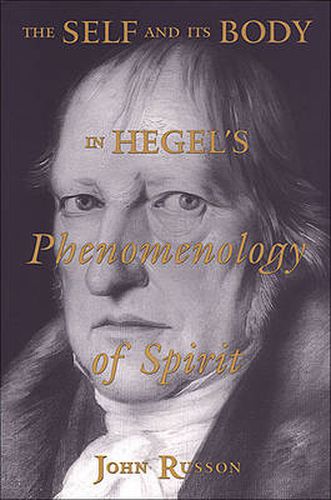Readings Newsletter
Become a Readings Member to make your shopping experience even easier.
Sign in or sign up for free!
You’re not far away from qualifying for FREE standard shipping within Australia
You’ve qualified for FREE standard shipping within Australia
The cart is loading…






A major criticism of Hegel’s philosophy is that it fails to comprehend the experience of the body. In this book, John Russon shows that there is in fact a philosophy of embodiment implicit in Hegel’s Phenomenology of Spirit. Russon argues that Hegel has not only taken account of the body, but has done so in a way that integrates both modern work on embodiment and the approach to the body found in ancient Greek philosophy.
Although Russon approaches Hegel’s Phenomenology from a contemporary standpoint, he places both this standpoint and Hegel’s work within a classical tradition. Using the Aristotelian terms of ‘nature’ and ‘habit,’ Russon refers to the classical distinction between biological nature and a cultural ‘second nature.’ It is this second nature that constitutes, in Russon’s reading of Hegel, the true embodiment of human intersubjectivity. The development of spirit, as mapped out by Hegel, is interpreted here as a process by which the self establishes for itself an embodiment in a set of social and political institutions in which it can recognize and satisfy its rational needs. Russon concludes by arguing that self-expression and self-interpretation are the ultimate needs of the human spirit, and that it is the degree to which these needs are satisfied that is the ultimate measure of the adequacy of the institutions that embody human life.
This link with classicism - in itself a serious contribution to the history of philosophy -provides an excellent point of access into the Hegelian system. Russon’s work, which will prove interesting reading for any Hegel scholar, provides a solid and reliable introduction to the study of Hegel.
$9.00 standard shipping within Australia
FREE standard shipping within Australia for orders over $100.00
Express & International shipping calculated at checkout
A major criticism of Hegel’s philosophy is that it fails to comprehend the experience of the body. In this book, John Russon shows that there is in fact a philosophy of embodiment implicit in Hegel’s Phenomenology of Spirit. Russon argues that Hegel has not only taken account of the body, but has done so in a way that integrates both modern work on embodiment and the approach to the body found in ancient Greek philosophy.
Although Russon approaches Hegel’s Phenomenology from a contemporary standpoint, he places both this standpoint and Hegel’s work within a classical tradition. Using the Aristotelian terms of ‘nature’ and ‘habit,’ Russon refers to the classical distinction between biological nature and a cultural ‘second nature.’ It is this second nature that constitutes, in Russon’s reading of Hegel, the true embodiment of human intersubjectivity. The development of spirit, as mapped out by Hegel, is interpreted here as a process by which the self establishes for itself an embodiment in a set of social and political institutions in which it can recognize and satisfy its rational needs. Russon concludes by arguing that self-expression and self-interpretation are the ultimate needs of the human spirit, and that it is the degree to which these needs are satisfied that is the ultimate measure of the adequacy of the institutions that embody human life.
This link with classicism - in itself a serious contribution to the history of philosophy -provides an excellent point of access into the Hegelian system. Russon’s work, which will prove interesting reading for any Hegel scholar, provides a solid and reliable introduction to the study of Hegel.